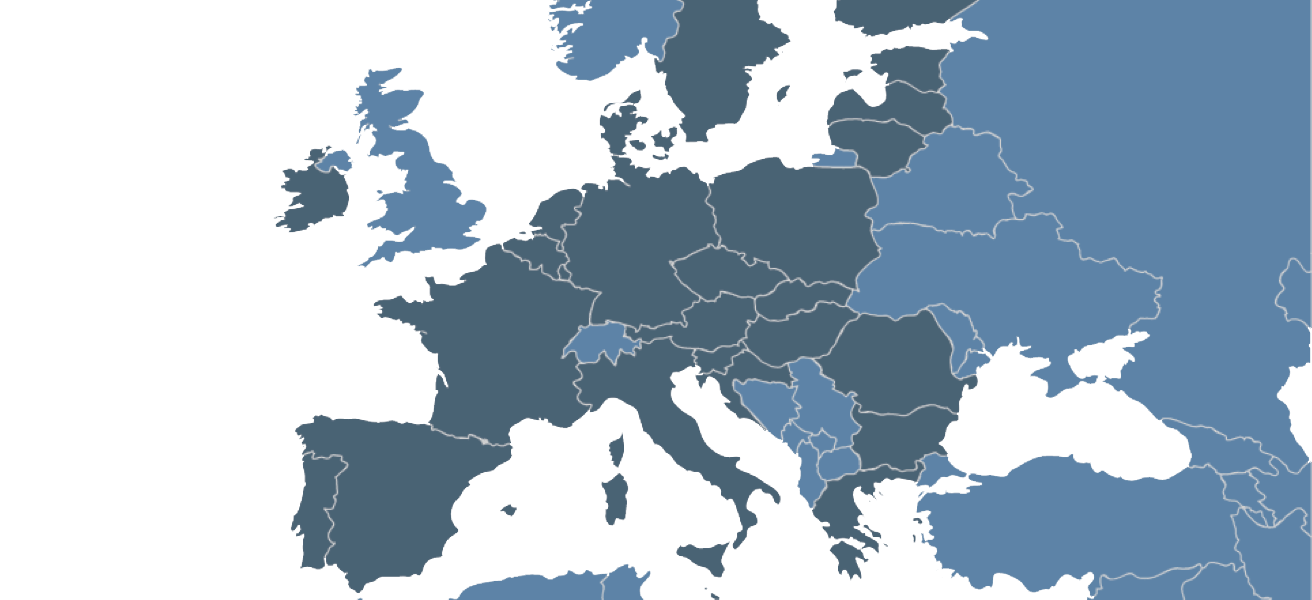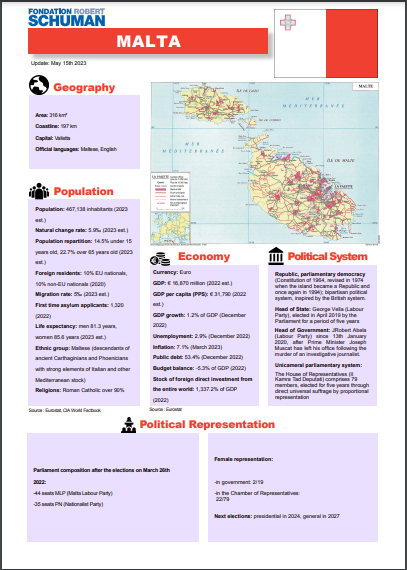Future and outlook
Oleksandra Bulana
—
23 June 2025
Future and outlook
9 November 2024
since one year, the Schuman Network, an initiative of the Foundation, is working to promote the sharing of ideas on a European scale. With 21 members from 13 European countries, the Schuman Network is a forum to pool research on current European issues. Since its launch, over 130 studies have been published.
Democracy and citizenship
Birgit Holzer
—
29 April 2025
The Balkans
Thirty years after the Dayton-Paris Agreement: the European Union must get involved in Bosnia and...
Željana Zovko
—
1 April 2025
Elections in Europe
Corinne Deloy
—
3 June 2025
Gender equality
22 July 2024
Of the MEPs who took office on 16 July, 38.6% are women. These are the figures compiled by the Foundation in its summary tables ranking the Member States of the European Union according to female representation in political bodies. The three tables examine parity within governments, national parliaments and the European Parliament.

The Letter
Schuman
European news of the week
Unique in its genre, with its 200,000 subscribers and its editions in 6 languages (French, English, German, Spanish, Polish and Ukrainian), it has brought to you, for 15 years, a summary of European news, more needed now than ever
Versions :
Elections in Europe
Corinne Deloy
—
20 May 2025
Elections in Europe
Corinne Deloy
—
20 May 2025

Reduce your taxes by supporting the foundation!
Reduce your taxes by supporting the Foundation and join us in building the Europe of tomorrow!
By supporting the Foundation you will be helping to promote the European values of democracy, peace, solidarity and prosperity.
The Robert Schuman Foundation is recognised as being an organisation of public interest and is entitled to receive donations and legacies from individuals and companies.

![[object Object]](https://server.www.robert-schuman.eu/storage/images/banque/daniele-franchi-vhrbzj7hcke-unsplash.jpg)













